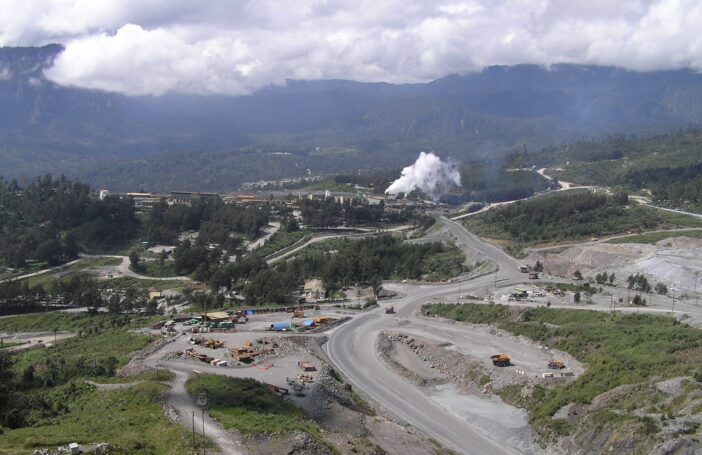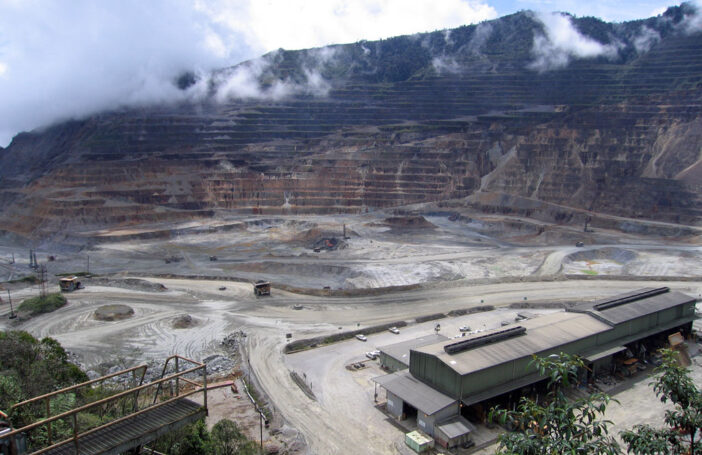The recovery in the global economy will help the Pacific economies improve in 2011. The strongest gains are expected in the resource-rich countries that are benefiting from both major new resource projects and better world commodity prices, says the Asian Development Bank’s (ADB)’s Pacific Economic Monitor.
The report projects that the 14 economies of the Pacific will expand by 6.3% in 2011, up from 5.3% last year. The resource-rich Papua New Guinea (PNG) and Timor-Leste are forecast to grow by 8.5% and 10% respectively, fuelled by the benefits of liquefied natural gas and petroleum developments. The resumption of gold exports and a stronger forestry sector will expand the Solomon Islands economy by 7.5% in 2011, while phosphate exports will help Nauru return to moderate economic growth.
Excluding the economies of PNG and Timor-Leste, the Pacific Economic Monitor estimates the Pacific Island economies will grow by 1.7% this year, an improvement from the 0.8% expansion of last year.
“Overall, the Pacific economy is doing better thanks to improved world economic conditions,” said Robert Wihtol, Director General of the ADB’s Pacific Department. “However, this masks sharply different performances across the region. The resource-rich economies are well placed to record high rates of economic growth but the smaller and more remote economies are exposed to the costs from rising world fuel and food prices.”
The report projects inflation of 4% in the Pacific Island economies (excluding PNG and Timor-Leste) this year and 6.5% in the Pacific as a whole. It warned of the risk of even higher inflation if global commodity prices remain at recent highs.
“Learning from the 2008 experience of high commodity prices, the Federated States of Micronesia, Kiribati, Marshall Islands, Palau, and Tuvalu are at most risk from the inflationary effect of higher world commodity prices,” said Mr Wihtol.
The region should see an increase in tourism and some recovery in wage remittances this year on the back of an improved outlook for the economies of Australia and New Zealand, the source of most visitors and remittances to the Pacific. The Cook Islands, Fiji Islands, Samoa, Tonga, and Vanuatu stand ready to gain the most from these improvements.
PNG economy to grow 8.5% in 2011
Papua New Guinea’s (PNG) economy should grow by 8.5% this year and 6.5% in 2012 largely due to the recent rise in commodity prices and new project investments in the resource-rich Pacific nation.
Farmers make up the majority of the PNG population, so higher agricultural prices will support local consumption. Gross domestic product expanded by 7.0% in 2010 and 5.5% in 2009.
The monitor credits the $15 billion ExxonMobil-led Liquefied Natural Gas (LNG) Project as being largely responsible for boosting growth in PNG.
“Private investment is strong in PNG as businesses seize the opportunities generated by the LNG Project,” said Charles Andrews, Country Director of ADB’s Papua New Guinea Resident Mission. “The challenge is to ensure the sound management of the revenues gained from these opportunities, and the government has already made some prudent steps in this area.”
Still, rising international food prices, the depreciation of the kina in 2010 and some supply side constraints in skilled labor, construction, and transportation will fuel inflation. The diversification of imports sourced from emerging Asian markets may however be helping to contain wholesale and retail prices. ADB expects inflation of 8.0% this year and 7.5% next year which may require the central bank to tighten monetary policy.
PNG’s 2011 national budget – at $3.5 billion or 14% of gross domestic product – is the largest in the country’s history. The PNG Government expects to generate sufficient revenues to deliver a balanced budget this year, excluding trust fund drawdowns.
The report acknowledged the PNG Government’s commitment to developing a sovereign wealth fund as a means of preserving the expected profits of the LNG project for future generations. It commended the government on its consultative approach and its intention to manage all resource revenues through offshore funds, with all expenditures channeled through the budget process.The monitor noted that in 2010 much of the windfall revenues from high commodity prices were spent on discretionary capital spending in the supplementary budget. It encouraged the PNG Government to instead spend such revenues on the rehabilitation and maintenance needs of existing public infrastructure.
Timor-Leste needs strong public investment
Timor-Leste should see strong economic growth in 2011 and 2012 but will need increased public and private sector spending in high-value investments to sustain it at an elevated level in the coming decades.
Timor-Leste is forecast to grow by 10.0%, driven by the development of its oil and gas fields. The report forecasts Timor-Leste’s non-petroleum gross domestic product will rise 10.0% in 2011, excluding the contribution from the United Nations. That would follow a 9.5% expansion in 2010 and double-digit growth in 2007-2009 on the back of a rapid build-up in government spending.
Capitalizing on its growing labor force, and the ability to invest petroleum revenue in infrastructure and human capital, long-term economic projections presented in the monitor conclude that Timor-Leste could be one of the fastest-growing economies in emerging Asia through to 2030.
“Achieving Timor-Leste’s development goals will require a high level of public investment over the coming decades,” said Craig Sugden, ADB Resident Representative in Dili. “Matching efforts to strengthen the private sector will lay the groundwork for sustainable economic growth.”
In a special section titled “Timor-Leste: Growth to 2030,” the report says Timor-Leste will need annual investment to rise to over $500 million within five years and above $1.5 billion in 10 years if the country is to maintain double-digit growth rates.
“The growth dividend from investment will be highest if Timor-Leste establishes the same sound policy and institutional environment in place elsewhere in emerging Asia, as well as good infrastructure and a well-educated labor force,” said Mr. Sugden.
Higher world oil and food prices are projected to raise Timor-Leste’s inflation to 7.5% in 2011. Such higher inflation will need to be carefully managed, the report says. It will be particularly important to avoid repeated adjustments to public sector salaries, as they could create a wage-price spiral.
The ADB, based in Manila, is dedicated to reducing poverty in Asia and the Pacific through inclusive economic growth, environmentally sustainable growth, and regional integration. Established in 1966, it is owned by 67 members – 48 from the region.





Dear Skip,
You make a good point–the SWF will only be as good as it’s administration. Funds have been raided in the past and the risk of this happening again is high. That’s why the NRI wants constitutional protection for the SWF.
My view is that SWF is not panacea and will be vulnerable, and that the bigger question, that the SWF doesn’t answer, is how will mineral revenues ultimately be spent?
Here are a few ideas to think about.
– If services aren’t reaching rural areas, how about using mobile phones to make cash payments instead and/or crowdsource feedback on service delivery?
– If government is unaccountable for how it collects and spends mineral revenues, how about direct distribution to PNGeans, along the lines that CGD’s Todd Moss is proposing in Africa? What else can be done to improve accountability?
– If discretionary funds are more vulnerable to being raided, how about locking in spending that will make a difference (l.t contracts for maintain roads, manage health facilities etc.)?
SWF is a good idea, but it is not sufficient and has a high risk of failing to achieve its objectives. We need more discussion on what else is needed.
I’d underline a point implied. “PNG Government expects to … deliver a balanced budget this year, excluding trust fund drawdowns… in 2010 much of the windfall revenues from high commodity prices were spent on discretionary capital spending”
Yes, good to see PNG establish a sovereign wealth fund. But the effectiveness of such a measure lies in its administration. There is a real question whether the discipline will be there to avoid raiding the fund at inappropriate times.